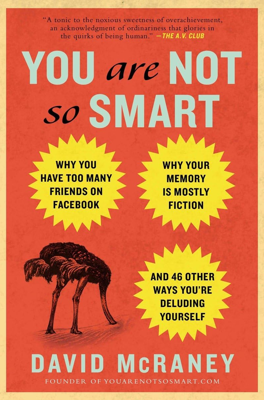The Dunning-Kruger Effect
Misconception vs. Truth
Misconception: You can predict how well you would perform in any situation.
Truth: You are generally pretty bad at estimating your competence and the difficulty of complex tasks.
The Essence of the Dunning-Kruger Effect
- The Dunning-Kruger effect occurs when individuals with limited knowledge or skill in a domain overestimate their own competence.
- Conversely, those who are highly skilled often underestimate their relative competence because they are more aware of what they don't know.
Examples and Everyday Observations
- People often overestimate their abilities based on limited experience, such as a person winning local games thinking they can compete at a professional level.
- YouTube stars or participants in talent shows often overestimate their aptitude, failing to gauge the wider, more proficient audience they are performing to.
Underlying Psychology
- Research by Justin Kruger and David Dunning at Cornell University in 1999 showed that people are often inaccurate in estimating their own skill levels in tasks like humor and logic.
- While some can predict their competence accurately, generally, people fail to do so.
The Impact of Skill Level
- High Skill Level: The more skilled you are, the better you understand the complexity of the field and recognize where you need improvement.
- Low Skill Level: The less skilled you are, the more likely you are to overestimate your capabilities because of a lack of feedback or experience.
Further Research
- A 2006 study by Burson, Larrick, and Klayman showed that the Dunning-Kruger effect isn’t absolute. On easy tasks, high performers are more accurate in self-assessment, whereas on difficult tasks, it is the low performers who are somewhat accurate.
Cognitive Insights and Quotations
- Bertrand Russell: "In the modern world the stupid are cocksure while the intelligent are full of doubt."
- Charles Darwin: "Ignorance more frequently begets confidence than does knowledge."
Implications and Practical Advice
- Recognize that overestimating your abilities is a common human trait.
- To improve genuinely, practice consistently and compare yourself to established experts to gain a realistic understanding of your skill level.
- Be open to feedback and acknowledge your limitations to keep improving.
Influence in Media and Culture
- Reality TV often showcases the Dunning-Kruger effect by featuring individuals who greatly overestimate their talents, creating a bubble of false confidence.
Stages of Progression
- Moving from novice to expert involves increasing understanding and recognition of the complexity of the field.
- The Dunning-Kruger effect tends to occur when individuals quickly transition from novice to amateur without fully grasping the longer paths required to become an expert or a master.
Balancing Self-Assessment
- Understand the necessity of both confidence and humility.
- Avoid the extremes of the Dunning-Kruger effect and depression. Cultivate self-awareness and a growth mindset for continual improvement.
This summary focuses on the main concepts of the Dunning-Kruger effect, providing insights into why people misjudge their abilities and how to better estimate personal competence.
